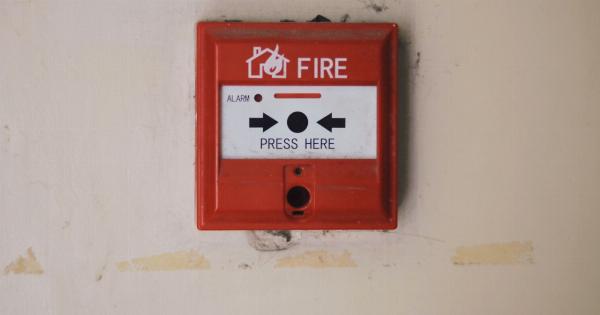Stomach ulcers, also known as peptic ulcers, are painful sores that form in the lining of the stomach or small intestine.
They are often caused by an overgrowth of the bacterium Helicobacter pylori, as well as the overuse of nonsteroidal anti-inflammatory drugs (NSAIDs). Symptoms of stomach ulcers include abdominal pain, nausea, vomiting, and bloating. These symptoms can be severe enough to interfere with daily life, and treatment is often necessary to relieve pain and promote healing.
One non-invasive treatment option for stomach ulcers is breathalyzer testing. Breathalyzer testing involves blowing into a device that measures the levels of various gases in the breath. In cases of stomach ulcers caused by H.
pylori, the bacteria produce a specific compound called urea, which can be detected in the breath. By measuring the levels of urea in the breath, doctors and other healthcare professionals can determine whether a person has an H. pylori infection, and whether treatment is necessary.
How Does Breathalyzer Testing Work?
Breathalyzer testing for stomach ulcers is a simple and non-invasive procedure. It typically involves the following steps:.
- The patient is asked to refrain from eating, drinking, or smoking for a period of time before the test, usually around 12 hours.
- The patient drinks a small amount of water, which contains a known amount of urea.
- The patient waits for a period of time, during which the H. pylori bacteria break down the urea in the stomach.
- The patient blows into a breathalyzer device, which measures the levels of urea in the breath.
If the levels of urea in the breath are high, it indicates that the H. pylori bacteria are present in the stomach, and treatment may be necessary to alleviate symptoms and promote healing.
Benefits of Breathalyzer Testing for Stomach Ulcers
There are several benefits to using breathalyzer testing for stomach ulcers, including:.
- Non-invasive: Breathalyzer testing is a simple and non-invasive procedure that does not require any invasive tests or procedures.
- Accuracy: Breathalyzer testing is highly accurate, with a sensitivity and specificity of greater than 90 percent, meaning it can accurately detect the presence of H. pylori bacteria in the stomach.
- Convenience: Breathalyzer testing can be performed in a doctor’s office or other healthcare setting, without the need for hospitalization or other invasive procedures.
- Cost-effective: Breathalyzer testing is a cost-effective alternative to more invasive tests, such as endoscopy, which is often used to diagnose stomach ulcers.
Risks of Breathalyzer Testing for Stomach Ulcers
There are few risks associated with breathalyzer testing for stomach ulcers. Some patients may experience mild side effects, such as nausea or an unpleasant taste in the mouth, from drinking the urea solution.
However, these side effects are usually mild and transient, and do not require any additional treatment or intervention.
When Should Breathalyzer Testing Be Performed?
Breathalyzer testing can be performed in a variety of settings, including doctor’s offices, clinics, and hospitals.
It may be recommended for people who are experiencing symptoms of stomach ulcers, such as abdominal pain, nausea, vomiting, or bloating. It may also be recommended as a screening test for people who are at increased risk of developing stomach ulcers, such as those with a family history of the condition or those who take NSAIDs regularly.
If the results of the breathalyzer test are positive, indicating the presence of H. pylori bacteria in the stomach, treatment may be necessary to relieve symptoms and promote healing.
Treatment may involve a combination of antibiotics and medications to reduce the acid levels in the stomach, as well as lifestyle modifications such as avoiding trigger foods and reducing stress. Your healthcare provider will work with you to develop a treatment plan that is tailored to your individual needs.
Conclusion
Breathalyzer testing is a simple and non-invasive procedure that can be used to diagnose stomach ulcers caused by H. pylori bacteria.
It is highly accurate, convenient, and cost-effective, making it an ideal alternative to more invasive tests such as endoscopy. If you are experiencing symptoms of stomach ulcers, or if you are at increased risk of developing the condition, talk to your healthcare provider about the benefits of breathalyzer testing and whether it may be appropriate for you.



























